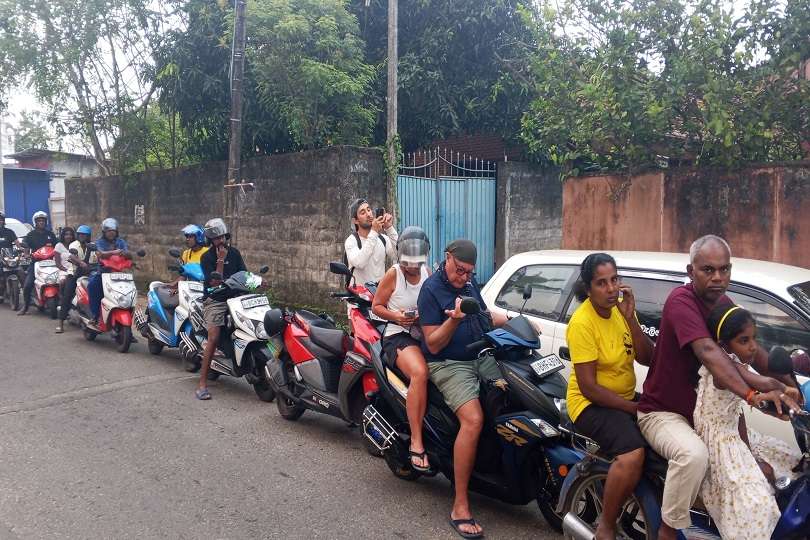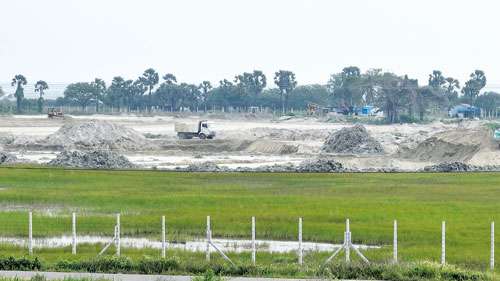Tea exporters resume exports to revive SL economy
Sri Lanka’s tea trade is anxiously waiting for the next tea auction scheduled for April 16, 17 and 18th April on the digital platform after successful completion of the first ever online tea sale two weeks ago, the Tea Exporters Association (TEA) said on Tuesday.
The TEA said, in view of the tight global supply situation, that it believes that there will be a strong demand for Ceylon Tea in the short term and the prices will remain strong at the next tea auctions running up to end of May/early June 2020.
It is reported the tea production in South India will decline by about 20 million kg in the first half of 2020. The Indian tea industry expects a drop of between 6-8 per cent in its tea exports in 2020 due to decline in tea production. The demand could slowly come down from early June depending on supply situation as we are entering in to the summer season. However, there could be an increase in home consumption of tea while out of home tea consumption remain low as people will continue to restrict their movements or travelling to other countries.
“Tea exporters are concerned about the non-availability of tea packaging materials even for bulk tea shipments. The export of value added tea also has been affected due to a shortage of labour as well as tea bagging and packaging materials. Although TEA has taken up this issue with relevant authorities, the suppliers remain closed as packaging industries are not listed as an essential service. If the packaging materials are not available in the market, the exporters may not be able to continue purchasing teas at the future auctions,” the association said.
The tea exporters face many challenges; some of them are listed below, while doing their best to keep tea exports moving:
• Require enhanced working capital as the tea prices have gone up significantly while export remittances come at a slower pace.
• Getting payments on time from EU, the US and West Asia is an issue as they are virtually under lockdown situation resulting in an increase in finance cost.
• Lower overhead cost absorption as daily operations are at 25 per cent capacity due to unavailability of adequate manpower.
• Additional costs being incurred for staff and labour transport, meals and other health and safety measures activities.
• Limited service offered by banks.
• The hassle of getting passes and certifications from relevant state and private sector support agencies due to restricted working hours/dispatching documents etc also worries the tea exporters. If the situation continues, most buyers may purchase teas only for their urgent requirements.
The TEA has requested the Tea Board to suspend the collection of the Tea Promotion Levy (Rs.3.50/kg) to support the cash flow position of the exporters and await a favourable response from the board.
Meanwhile tea exporters despite the current situation came forward to support the digital auction with minimum user training to help the producers including Regional Plantation Companies (RPCs) and the tea smallholder farmers of over 650,000 to generate the required revenue to pay the New Year wages and also help the Government to earn the much needed foreign exchange for the country.
The exporters were concerned about the global situation at the time of commencement of the sale. However, despite the impact of COVID-19 that affected almost all countries in the world, the buyers of Ceylon Tea in Russia, Turkey, Ukraine, EU and West Asia helped to keep the last tea auction buoyant and the depreciation of the Rupee by about 8 per cent against the US Dollar compared to the rate that prevailed during the manual tea auction held on March 18-19 also contributed to a significant gain in prices. Since the digital platform auction was held after a gap of two weeks, there was a higher demand for the limited supply of 4.5 million kg available for sale which also helped to increase the average prices by Rs. 74/ per kg. Since tea is considered a food item, there were no import restrictions and the foreign buyers treated it as a priority product of imports.
The TEA said the lockdown situation in India that has temporarily shut down the tea production and exports from the country also prompted foreign buyers to turn towards the Colombo tea auction. Unfortunately for India, due to the shutdown, the North Indian season for quality teas too will get affected severely. It’s imperative that the Sri Lanka tea producers continue to manufacture good quality teas to capture this market opportunity and keep the market buoyant.
The next two sales have been combined as the volume of two sales is approximately 6.7 million kg. The severe drought condition that prevailed in many tea growing districts in the country was the main cause for the decline in local tea production. The auction under normal circumstances would have had an average volume of 6 million kg of tea every week. “We may once again see a strong demand as inquiries have started coming from Iran after lifting of restrictions imposed due to coronavirus issue,” the statement said.
However, the strong demand from Iran can be expected until India resumes their exports. Once the Indian suppliers commence tea exports to Iran under the special trading arrangements, Sri Lanka may witness a decline in Iran business. The implementation of proposed scheme for supply of tea to Iran in settlement of US$250 million due to them by Ceylon Petroleum Corporation has come to a standstill with the temporary suspension of work over COVID-19.
“The Tea Board, Ministry of Plantation Industries and Ministry of Power and Energy should look at this matter for urgent implementation. The government may talk to the US to obtain the necessary consensus for supply of tea which falls under supply of food and humanitarian goods that is permitted under prevailing sanctions. The implementation of the Iran payment mechanism will be a huge boost to the local tea market,” the statement said.
-
Still No Comments Posted.











Leave Comments